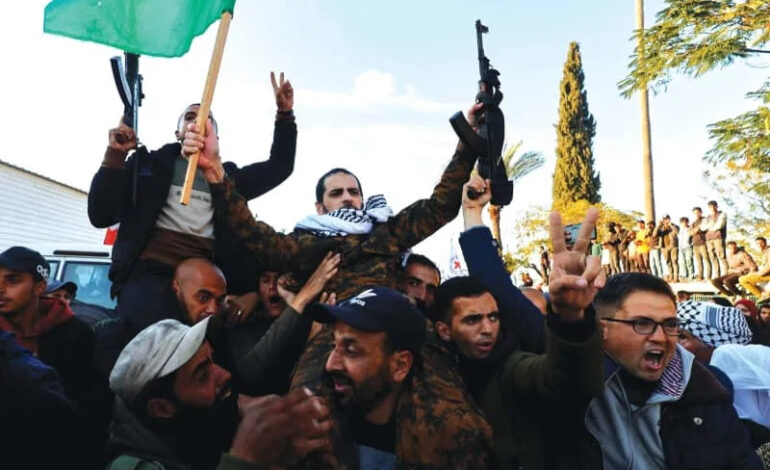Israel to Release Terrorist Convicted in Deadly 2000 Attacks

The Israeli government has approved a controversial peace deal that includes the release of Jihad A-Karim Azziz Rom, a convicted terrorist involved in the brutal killings of two Israeli Defense Forces (IDF) reservists and the murder of a teenager. According to a report by Maariv on Friday, Rom is one of several individuals slated for release as part of the agreement aimed at easing tensions in the Gaza region.
Rom, who was 26 years old during the events, received a life sentence for the murder of Yuri Gushchin and an additional 20 years for his participation in the lynching of IDF reservists Vadim Norzitch and Yosef Avrahami in 2000. The lynching is often cited as a pivotal moment in Palestinian terrorism, drawing international attention when Italian film crews captured footage of celebratory scenes at the Ramallah police station after the attack.
On the day of the lynching, Norzitch and Avrahami inadvertently drove into Ramallah, where they were detained by officers of the Palestinian Authority. They were subsequently taken to a police station in the nearby city of el-Bireh, where a crowd of approximately 1,000 Palestinians gathered, ultimately overpowering the police and violently killing the two men.
Gushchin, who emigrated to Israel from Russia in 1990, was visiting Ramallah with a Palestinian acquaintance under the pretense of job opportunities. He was murdered at the age of 18, with his body discovered in a slaughterhouse area between El Bireh and Beit El, showing multiple stab and gunshot wounds.
Details on Additional Releases
In addition to Rom, Baher Bader, another terrorist linked to a suicide bombing in Tzirifin in 2004, is also reported to be released. Bader was sentenced to 11 life sentences for his actions. The Israeli government has stated that it will not release individuals convicted of child murders, life prisoners who have served less than a decade, or those designated as “terror symbols.”
The decision to release Rom and others as part of the peace initiative has sparked significant debate and concern within Israel and beyond. Critics argue that releasing individuals involved in such violent acts undermines security and justice for the victims and their families.
Supporters of the agreement, however, argue that these measures are essential for fostering dialogue and reducing hostilities in the region. As ongoing tensions between Israel and Palestine continue to shape the political landscape, the implications of this release may have far-reaching effects on future negotiations and peace efforts.






